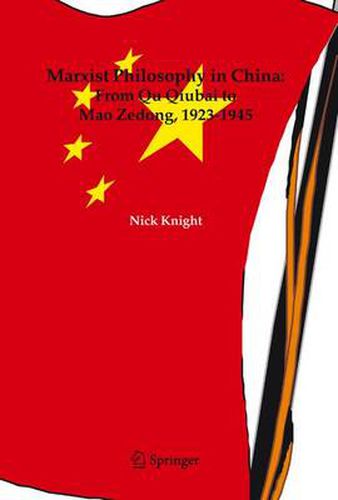Readings Newsletter
Become a Readings Member to make your shopping experience even easier.
Sign in or sign up for free!
You’re not far away from qualifying for FREE standard shipping within Australia
You’ve qualified for FREE standard shipping within Australia
The cart is loading…






This title is printed to order. This book may have been self-published. If so, we cannot guarantee the quality of the content. In the main most books will have gone through the editing process however some may not. We therefore suggest that you be aware of this before ordering this book. If in doubt check either the author or publisher’s details as we are unable to accept any returns unless they are faulty. Please contact us if you have any questions.
This book recounts the history of Marxist philosophy in China between 1923 and 1945 through the writings and activities of four philosophers: Qu Qiubai, Ai Siqi, Li Da and Mao Zedong. Two of these philosophers - Qu and Mao - were also political activists and leaders, but their contribution to this history is as important, if not more so, than the contribution of Ai and Li who were predominantly philosophers and scholars. The inclusion of Qu and Mao underlines the intimate connection between philosophy and politics in the revolutionary movement in China. It is not possible to speak credibly of Marxist philosophy in China without considering the political context within which its introduction, elaboration and dissemination proceeded. Indeed, each of the philosophers considered in this book repudiated the notion that the study of philosophy was a scholastic intellectual exercise devoid of political significance. Each of these philosophers regarded himself as a revolutionary, and considered philosophy to be useful precisely because it could facilitate a comprehension of the world and so accelerate efforts to change it. By the same token, each of these philosophers took philosophy seriously; each bent his mind to the daunting task of mastering the arcane and labyrinthian philosophical system of dialectical materialism. Philosophy might well be political, they believed, but this was no excuse for philosophical dilettantism.
$9.00 standard shipping within Australia
FREE standard shipping within Australia for orders over $100.00
Express & International shipping calculated at checkout
This title is printed to order. This book may have been self-published. If so, we cannot guarantee the quality of the content. In the main most books will have gone through the editing process however some may not. We therefore suggest that you be aware of this before ordering this book. If in doubt check either the author or publisher’s details as we are unable to accept any returns unless they are faulty. Please contact us if you have any questions.
This book recounts the history of Marxist philosophy in China between 1923 and 1945 through the writings and activities of four philosophers: Qu Qiubai, Ai Siqi, Li Da and Mao Zedong. Two of these philosophers - Qu and Mao - were also political activists and leaders, but their contribution to this history is as important, if not more so, than the contribution of Ai and Li who were predominantly philosophers and scholars. The inclusion of Qu and Mao underlines the intimate connection between philosophy and politics in the revolutionary movement in China. It is not possible to speak credibly of Marxist philosophy in China without considering the political context within which its introduction, elaboration and dissemination proceeded. Indeed, each of the philosophers considered in this book repudiated the notion that the study of philosophy was a scholastic intellectual exercise devoid of political significance. Each of these philosophers regarded himself as a revolutionary, and considered philosophy to be useful precisely because it could facilitate a comprehension of the world and so accelerate efforts to change it. By the same token, each of these philosophers took philosophy seriously; each bent his mind to the daunting task of mastering the arcane and labyrinthian philosophical system of dialectical materialism. Philosophy might well be political, they believed, but this was no excuse for philosophical dilettantism.